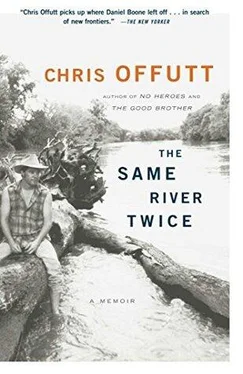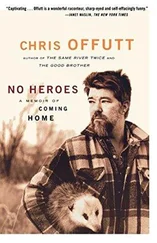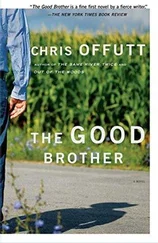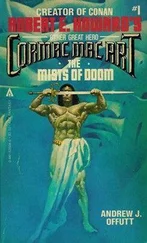I had six dollars when Shadrack met me in Boston. He kept remembering money he’d borrowed in the past, enough to keep me in cigarettes and food. He also deigned to share with me the towel I’d given him. I found work at a one-hour photo store, producing imagery before the sentiment had time to fade. Since I was the only male and the only white, customers assumed I was the manager. I quit, tired of people believing lies about me. I wasn’t an actor, painter, playwright, or poet. I was just one more nondescript person on the planet. Ponce de León died from a Seminole’s arrow at age sixty, still trying to live the life of a youth. I would not make his mistake. I moved into an upscale rooming house and wrote some poems.
A few months blurred by and I met a woman. Rita was a psychologist and musician. She was attractive in an honest way, rather than a gender contraption of makeup, diet soda, and designer jeans. Her body was simply her body, not kneaded by Nautilus into a sculptor’s plaster form. Her eyes were enormous and in constant motion. She was far more intelligent than I. She was Calliope making do with a mortal.
Rita asked me to take her out of town, and though I’d lived in the Boston area for years, the only place I felt confident of finding was Salem. The House of Seven Gables has a secret passage that tourists can be led through for a fee. We held hands in that narrow space between the two worlds of past and present. I wanted to kiss her but the guide was hurrying us along.
Later I showed her my poetry and she told me they weren’t poems but only looked like them. We had our first fight, which ended when she suggested I write prose. I taught her to drive a car, play poker, and shoot pool. Rita returned me to the species with a careful formula of protection and guidance. I ate and slept in regular patterns. I gained weight.
Within two years we moved three times, first to her hometown of Manhattan, where we were married. Rita had no brother, and her parents considered me a son. We saved some money and moved to Eastern Kentucky. My family welcomed Rita like royalty. They were pretty sure that with her around, I wouldn’t wind up in prison or dead.
After a year in the hills, we had run through our savings in a failed attempt to renovate a small house, having gotten as far as adding on a bathroom. Neither of us found work. The journal had become useless, an obvious dodge. With nothing but the familiar around me, I resorted to fiction.
Rita had long urged me to go to a writing school but I refused, afraid to learn that I had no talent. Of all my imagined artistic enterprises, writing was the only one at which I’d made genuine effort. I had three stories, all written in Kentucky, on my home hill.
Broke and in debt, I applied to several graduate programs, choosing the schools on a geographical basis. Rita favored the desert of Arizona and I wanted the Montana mountains. A teacher at the local college suggested that I apply to the University of Iowa, which I did, although the prospect of living on such terrain didn’t excite me. Iowa was the first to respond, with an acceptance.
A month later we took out a promissory note and rented a van. I was leaving home again, abandoning the hills. I’d never really found a place in the outside world, but had stayed away too long to fit in at home. We drove twelve hours with my stories in an envelope on my lap. The closer we got to Iowa, the worse the stories seemed. I’d had to reenter the hills to start writing, and I wondered if I’d be able to continue on flat land.
We camped by the Coralville Reservoir until we found an apartment in a condemned building beside the jail. The first year was hard and I considered leaving, an old pattern. Rita convinced me otherwise. We moved to a house by the river, where I built a small room to write in. I had my goddess. I had my temple. The prairie spread in every direction.
The baby is two weeks overdue, a sign of intelligence. It prefers the safety of further percolation instead of expulsion into the world of light and air, sorrow and joy. Lately it has been still, grown too large for its space. Eita’s belly is an immense full moon, her navel a smudge pulled inside out. Her lovely breasts rest high on her belly. She can barely walk.
This is the last day of waiting. I slept three hours last night, anesthetized by a half-pint of bourbon. I suffer no hangover this morning, only a wide-eyed dread of a stillbirth, There is no reason to think this way; Rita is in fine health. She has not broken her ban on caffeine, alcohol, and nicotine. I feel odd for leaving her every morning but she urges me out of the house. The only time she gets full rest is when I’m gone. A faint snow filters through the sky. Mist in the trees is actually chimney smoke, held to the earth by impending weather.
The riverbank is a crouching porcupine, bare tree limbs quilling the sky. A pin oak hit by lightning hangs at a right angle like a jack-in-the-pulpit. I crouch within the overhang, a pipeless Pan, Adam before Lilith, a druid needing no specific oak. Tiny beads of snow settle into the folds of cloth at my elbow. The wilderness accepts me as an extension of itself, an arm that knows its hand. I become as old and cold as all the silent trees along the river’s edge, accepting snow.
Unless birth occurs today, the hospital will induce Rita’s labor tomorrow. Such a timetable is usually reserved for jobs and sporting events. Only war and birth erupt on their own, preemptive strikes of broken water and treaties.
Wind on the surface makes the river appear to flow backwards. I cup my hands and emit the barred owl’s call. One answers and I don’t respond, satisfied with sharing the dawn. The final countdown has begun. We are like a stakeout team breaking surveillance to catch the baby in the act.
I fear the loss of independence although I didn’t do so well alone. What passed for adventure was despair, my courage actually a refusal to acknowledge fear. This arrangement of safety ends tomorrow. I will learn the vocabulary of a father — when you get older, maybe later, ask your mother.
Below the oak lies the regurgitated gray pellet of an owl. After eating its prey whole, an owl expels the bones and fur in a tidy package! This one is very hard, which means it’s old. I break it open to find the flat skull of a baby snake. As a child, I was scared of snakes and I intend to teach my kid otherwise. Children are only afraid of what their parents fear, that and the parents themselves.
Beside me the river moves south to join the Cedar, pushing toward the Mississippi, flowing to the Gulf. Everything runs to the Gulf. Rita has lightened. The baby’s head has wedged into the pelvic exit. Tomorrow the baby will join the earth as a trickling creek. We prepared ourselves four weeks ago in case the baby came early. Already it has fooled its folks.
I leave the woods and cross the yard to check on the boat. Months back, I pulled it into the yard to save it from the crush of ice. The boat looks bigger on land than in the water. I sit on the middle seat. Woodsmoke pushes down, swirling around me, the sign of a coming storm. The raw cry of a crow kills the silence, drawing my attention. An eagle stands on one leg in a tree, holding a bloody fish in its other claw, darting its head to rip through the scales. Crows land in nearby boughs as if paying homage to the superior hunter. They remind me of children trying to learn, and it occurs to me that fathers always seem to be of a different species.
I stay as long as I can against the cold. Tree limbs curve to the earth beneath the weight of snow. Every second brings me closer to fatherhood. I’m waiting in a boat on land, surrounded by smoke that does not rise. The river is flowing upstream.
Читать дальше












